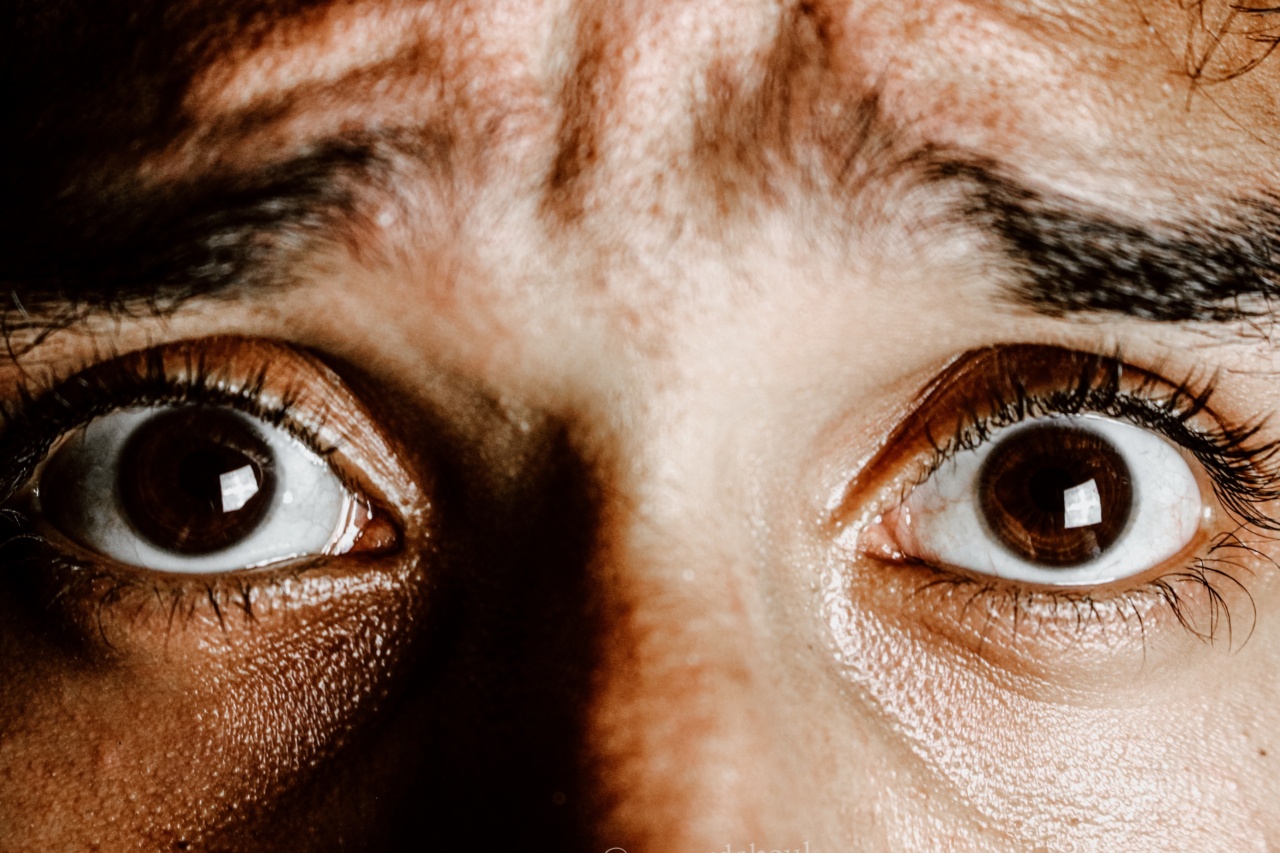Our eyes are probably one of the most important body parts that we have. They allow us to see the world around us, experience emotions and appreciate beauty.
But, have you ever thought about what could happen if something went wrong with them? The mere thought of our eyes losing their functionality is terrifying, but what’s worse is that it could happen. Here are some of the most terrifying things that could happen to your eyes:.
1. Blindness
Blindness is the complete loss of vision in one or both eyes. It’s one of the most severe conditions that could happen to your eyes. Blindness can be caused by genetic disorders, infections, eye injuries, and diseases like cataracts and glaucoma.
It’s essential to take care of your eyes to prevent severe eye conditions like blindness.
2. Retinal Detachment
Retinal detachment is when the retina, which is the thin layer of tissue in the back of the eye responsible for transmitting light to the brain, peels away from the underlying supportive tissue.
This condition is also considered an emergency, and immediate treatment is needed to prevent permanent vision loss. People who are nearsighted or have had an eye injury or previous eye surgery are at an increased risk of retinal detachment.
3. Macular Degeneration
Macular degeneration is an age-related condition that affects the central part of the retina, causing visual distortion, blurriness, dark spots, and even a blind spot in the vision.
It’s one of the leading causes of blindness in people over 50 years of age. Age, smoking, and a family history of macular degeneration are some of the risk factors for this condition.
4. Eye Cancer
Eye cancer, also known as ocular melanoma, is a rare type of cancer that can affect the eye’s structures, including the iris, retina, and other parts of the eye. It can spread to other parts of the body and be life-threatening.
Early detection and treatment are vital for eye cancer to prevent complications like loss of vision and life-threatening complications.
5. Corneal Ulcers
Corneal ulcers are open sores that develop on the cornea, which is the clear outer layer of the eye. They’re often caused by a bacterial, fungal, or viral infection. Corneal ulcers can cause redness, pain, and vision loss.
Without proper treatment, corneal ulcers can lead to severe eye damage or even blindness.
6. Glaucoma
Glaucoma is a group of eye diseases that damage the optic nerve, causing gradual vision loss. It’s often caused by high pressure inside the eye, leading to permanent vision damage.
It’s essential to get regular eye exams to detect and treat glaucoma early before it causes significant damage to your vision.
7. Cataracts
A cataract is a clouding of the eye’s natural lens, causing your vision to become blurred or dim. It’s a common condition that affects many people, especially those over 50.
Cataracts can cause significant vision changes, and in severe cases, surgery may be necessary to remove them.
8. Eye Injuries
Eye injuries, including chemical burns, blunt trauma, foreign objects, and penetrating wounds, can cause severe damage to the eyes and even permanent vision loss.
It’s important to take proper precautions to avoid eye injuries, including wearing protective eyewear and using caution when working with tools or chemicals that could cause eye damage.
9. Eye Floaters
Eye floaters are tiny specks or cobweb-like shapes that float across your field of vision, often moving when you move your eyes. They’re usually not harmful, but they can be annoying and distracting.
Eye floaters become more common as you age, and sometimes they can be a sign of a retinal tear or detachment, so it’s essential to get an eye exam if you notice an increase in floaters.
10. Dry Eye Syndrome
Dry eye syndrome is a common condition in which the eyes don’t produce enough tears or produce poor-quality tears. Symptoms of dry eyes include burning, itchy, red eyes, and blurred vision.
Dry eyes can be caused by aging, certain medications, and health conditions like Sjogren’s syndrome. Artificial tears, lifestyle changes, and prescription medications are often used to treat dry eyes.
Conclusion
There are many things that could happen to your eyes, and their severity ranges from minor annoyances to life-threatening conditions.
The best way to protect your eyes is to get regular eye exams, take proper precautions to prevent eye injuries, and maintain a healthy lifestyle. If you experience any significant eye-related symptoms, it’s essential to seek medical attention immediately. Don’t take your eyesight for granted, and take good care of your eyes to ensure they continue to function correctly and stay healthy.


























